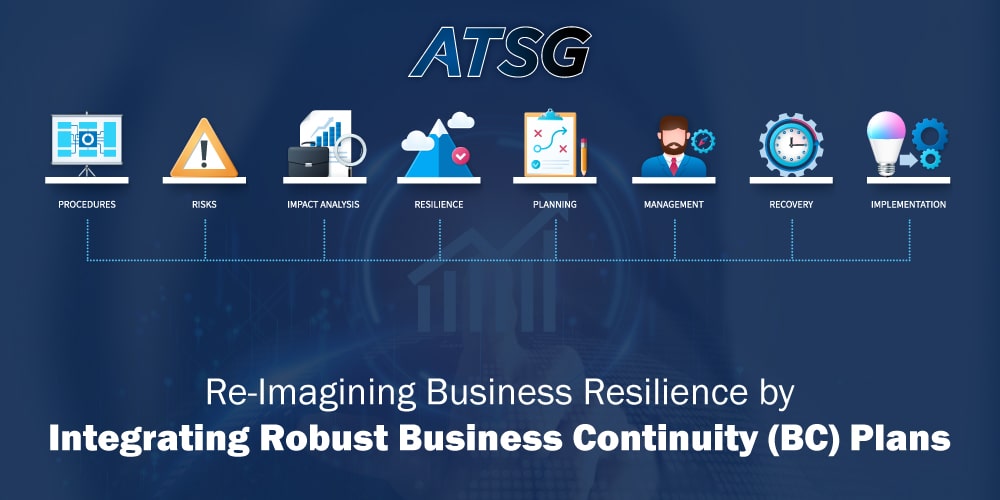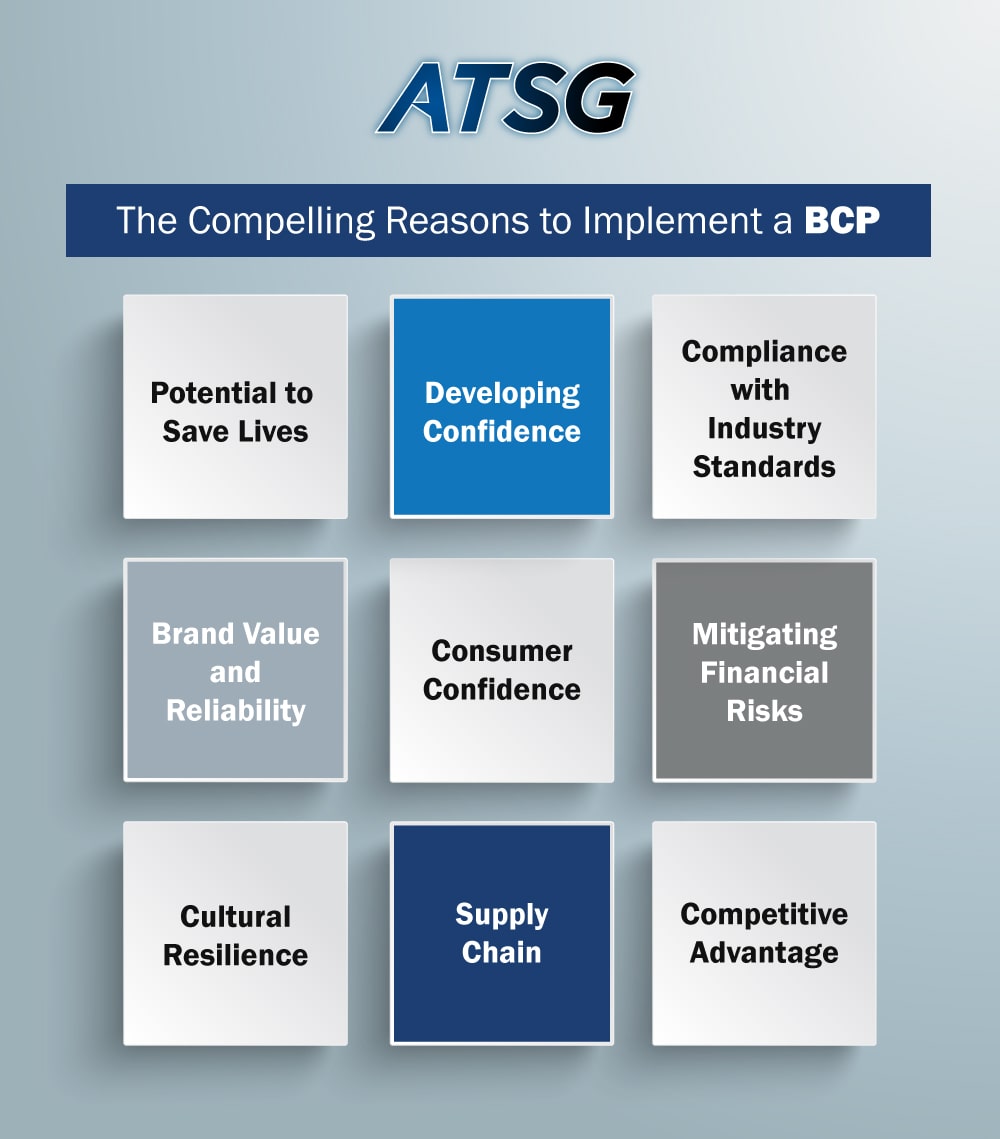Organizations often underestimate the importance of a robust business continuity (BC) plan. Any unplanned disruption in normal business processes can create immense hurdles and inflict costly setbacks. From natural disasters to willful and accidental damage, a potential business crisis can significantly disrupt operations, especially when there is no preparation for such contingencies.
This is where business continuity (BC) planning comes into play. As a part of every organization’s disaster recovery (DR) strategy, it is important to be prepared in advance to cope with any unexpected events. With business continuity (BC) plans in place, the prevention and recovery from potential disruption become a whole lot easier.

What is a Business Continuity Plan (BCP)?
A business continuity plan allows an organization to sustain essential processes before, during, and after a disaster. Business continuity differs from disaster recovery in its holistic approach toward the business.
BCP reflects a business-wide implementation plan to ensure the continuation of critical business functions, in case a disruptive event occurs. BCPs are an important part of any business.
Threats and disruption mean a loss of revenues and higher costs, leading to a profitability drop. To maintain the sustainability and reputation of businesses, it is essential to place a robust system that contains and mitigates a crisis-like situation, no matter what the source or reason.
The Purpose of a Business Continuity (BC) Plan
Businesses are prone to a host of disasters that range in degree, from minor to catastrophic. BCP is typically meant to help organizations continue their processes and operations in the event of such disasters.
BCP systems can help businesses back up their data, applications, and workloads immediately, which would enable the timely recovery of critical processes. BCPs can improve risk management, preventing any chaotic event from “blowing out of proportions”. It can also mitigate downtime of networks or core operations, saving the organization’s resources and expenditures.
The Compelling Reasons to Implement a BCP
Organizations are now trying their level best to create a system that protects their assets, resources, and operations. Companies have begun to recognize the benefits of adopting a BCP, including smooth functioning, threat mitigation, and disaster recovery.
The following reasons highlight why organizations need to integrate holistic Business Continuity Planning (BCP).

Potential to Save Lives
Civic organizations ensure that they have an emergency and evacuation plan ready beforehand, to save lives during natural disasters or crises. With a BCP, the organization can endorse training sessions on multiple ways to escape, and find a way to save themselves in certain situations. The same rule applies to enterprise operations, and organizations need to plan accordingly.
Developing Confidence
Communicating the BCP to employees helps them be aware of their responsibilities during an event or a crisis. With BCP, employees become confident and adept in handling disruption and disturbances independently. They measure the associated risks and maneuver business operations, as the situation demands.
Compliance with Industry Standards
Devising a BCP ensures that the organization’s Leadership team follows the highest business continuity standards. It ensures that the business is compliant with regulatory terms and industry mandates. This compliance ensures the easy execution of an organization’s BCP program and reflects that the company is aware of its responsibilities.
Brand Value and Reliability
Companies intending to handle disruptions without a proper BCP often stumble during disruptive situations or crises. The absence of appropriate guidance confuses organizational staff while managing a real crisis.
The communication gap in the process reflects the in-competence and unpreparedness of the organization, which leads to customers losing faith in the brand. This not only damages the company’s reputation but also destroys the credibility it built in the market. Having a BCP program can efficiently smooth out the recovery process, and preserve the brand’s equity.
Consumer Confidence
Transparency in business continuity efforts sends a positive message to customers. It voices the thoughts that the company, irrespective of situations, will be reliable and loyal to customers. The BCP helps develop customer relations and endorses a high level of commitment. This builds the confidence of customers and makes them believe that they are involved or investing in the right entity.
Mitigating Financial Risks
One of the prevalent reasons to choose BCP is its ability to help organizations mitigate financial risks. It is observed that enterprises with proper BCP can utilize their reserves, insurance, and hedging effectively to mitigate financial risks. Over the long term, this drastically improves the financial viability of an organization.
Cultural Resilience
Leaders and experts believe that focusing on resilience and recovery can strengthen BCP programs. With BCP and strong management support, staff tends to automatically apply these concepts during the development of services or products. In these circumstances, employees adapt to situations and change quickly, in case operations de-track.
Supply Chain
A BC program focuses more on critical operations that need to be recovered. Familiarity with processes through a BCP can help leaders take precautionary measures beforehand, to protect vital operations and assets. It helps them deliver uninterrupted services and products to customers, according to their demands and needs.
Competitive Advantage
Designing a BCP often allows organizations to be in an advantageous position over competitors. A deep understanding of BCP can ensure customers are associated with responsible entities. This develops a positive image of an organization in the market, which delivers a strong competitive advantage.
Leveraging Business Continuity (BC) from Service Providers
No one can predict the future, or forecast what businesses might exactly experience in a catastrophic event. However, having a BCP in place will guide the enterprise about ways to handle adverse situations, and emerge even stronger than before.
Leveraging BCP from a specialized service provider is a considerably more flexible, scalable, and cost-efficient solution, especially when compared to on-premise options. Today’s IT landscape is changing faster than ever, and with it, the level of unpredictability also increases. Organizations need to plan and think strategically, to support their demanding end-users, and keep their operational functionality at optimal levels.
Globally leading service provider ATSG caters to helping organizations achieve and design business continuity plans that encompass robust solutions, scalability, resilience, and security.
With ATSG’s Design and Implementation Services, certified and experienced technology experts can assist your organization through any complex engineering requirements, and optimize the current and future BC strategy.
ATSG’s Managed IT Services and intelligent technology solutions can help organizations leverage robust business continuity (BC) and disaster recovery (DR) programs that can “stand the test of time”.




